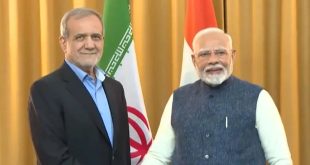Supreme Court On Electoral Bonds: Decoding the Challenge to the Electoral Bond Scheme
The Supreme Court, today, is set to announce its constitutional bench’s decision on the petitions challenging the Electoral Bond Scheme. This scheme was introduced as an alternative for political parties to bring transparency to political funding by providing options for anonymous donations. However, challenges have been filed in the Supreme Court by Congress leader Jaya Thakur, the Communist Party, and the Association for Democratic Reforms (ADR).
Background of Electoral Bond Scheme
The inception of the Electoral Bond Scheme aimed to bring transparency to political funding, offering a choice for parties to receive donations. Chief Justice D. Y. Chandrachud, leading a panel of five judges in the constitutional bench, had secured the decision last November. The bench comprises Justices Sanjeev Khanna, B. R. Gavai, J. B. Pardiwala, and Manoj Mishra. Understanding the context of the opposition and the dispute is crucial.
Voter Rights vs. Donor Privacy
The Constitution bench listened to arguments from both the government and petitioners for three days. The crux of the debate focused on the right of voters to know about the sources of funding against the donor’s right to keep their identity confidential. Chief Justice remarked during the hearing that they are not casting doubt on the government’s intentions behind introducing this scheme. Their concern is to avoid a return to the era of cash-based donations, emphasizing the need to improve the current scheme’s shortcomings.
Why the Matter Reached the Supreme Court
Advocates representing the petitioners, including Prashant Bhushan, Kapil Sibal, Shadan Farasat, and Nizam Pasha, argued that the Electoral Bond does not disclose the source of funds received by political parties. They asserted that voters have the right to know about the criminal past and movable-immovable assets of candidates contesting elections. However, the scheme compromises these fundamental rights of voters.
‘Dominant Party Receiving Maximum Funding’
The petitioners presented data between 2016-17 and 2021-22, revealing that out of the total ₹9188.35 crores distributed through Electoral Bonds to 7 national and 24 regional parties, the BJP received ₹5271.9751 crores. The Congress received ₹952.2955 crores, AITC received ₹767.8876 crores, and NCP received ₹63.75 crores through electoral bonds. The argument pointed towards the dominant parties receiving the lion’s share through this funding method.
‘A Gateway for Corruption’
Petitioners contended that over 99% of donations through Electoral Bonds are received by dominant political parties, making it a gateway for corruption. This overtly influences government policies and decisions. Ensuring benefits to companies through government contracts, leases, and licenses, the scheme potentially enables the government to collect more funds through this avenue, violating the fundamental principles of democracy by perpetuating inequality among political parties.
Election Commission and RBI’s Objections
The petitioners highlighted objections from the Election Commission and RBI regarding the scheme. Both institutions expressed concerns about the possibility of shell companies being created solely for political donations. Foreign companies could use their subsidiaries to contribute through Electoral Bonds, bypassing scrutiny. While the government can obtain donor information through SBI and investigating agencies, voters are left uninformed.
In conclusion, the Supreme Court’s decision on the Electoral Bond Scheme will significantly impact the landscape of political funding in India. Striking a balance between voter rights and donor privacy is essential for a healthy democracy. Reforms in the current scheme are imperative to address the concerns raised during the proceedings.
 Suspense Crime Sach Ka Dam
Suspense Crime Sach Ka Dam



